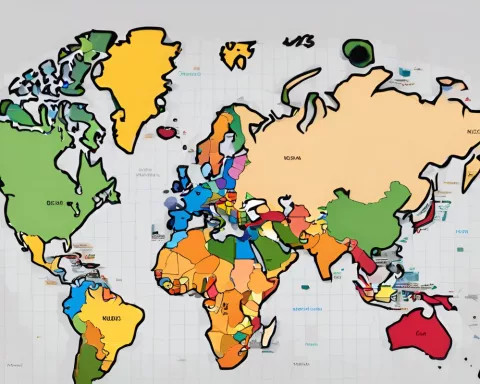The BRICS partnership, consisting of Brazil, Russia, India, China, and South Africa, has the potential to significantly impact the lives of millions of people worldwide. The alliance aims to ensure that economic growth and decent work opportunities are distributed more equitably among disadvantaged groups.
Bolstering Collaborative Efforts
Ms. Boitumelo Moloi, Deputy Minister of Employment and Labour, emphasized the importance of bolstering collaborative efforts within the BRICS partnership through multilateral forums such as the G20 and the International Labour Organisation (ILO). By doing so, the alliance can work together to create a more just and equitable world.
A Significant Advancement through the BRICS-wide Productivity Ecosystem
The proposal for a BRICS-wide Productivity Ecosystem for Decent Work represents a significant advancement in solidifying the partnership in the realm of labor and employment. The alliance demonstrates that it is possible to achieve common goals even amid adversity and challenges.
Utilizing the Collective Strength
Mr. Thobile Lamati, Director-General at the Department of Employment and Labour, remarked that the BRICS partnership has not yet fully utilized its power within the ILO to enhance cooperation among member states. He urged the group to consider the potential inherent in their collective strength for the benefit of their respective economies.
Key Challenges and Possible Solutions
One of the key challenges faced by the BRICS partnership is the lack of a unified agenda. One possible solution to this issue is the establishment of a BRICS secretariat, which would help facilitate communication and cooperation among member states. Another challenge faced by the partnership is the potential for conflict among member states. In order to prevent such conflicts from impeding the progress of the partnership, it is essential for member states to maintain open lines of communication and work together to find mutually beneficial solutions.
Considerable Progress Made
Despite these challenges, the BRICS partnership has made considerable progress in recent years. This progress is evident in various sectors, such as finance, trade, and infrastructure development. The establishment of the New Development Bank (NDB) and the Contingent Reserve Arrangement (CRA) has played a vital role in providing financial resources and support for sustainable development projects in member states.
Prioritizing Collaboration, Communication, and Shared Values
In conclusion, the BRICS partnership holds immense potential for promoting global progress and improving the lives of millions of people worldwide. As the alliance continues to evolve, it is crucial for member states to prioritize collaboration, communication, and shared values in order to overcome challenges and achieve their common goals. By doing so, the BRICS partnership can indeed become a beacon of hope for global progress.












